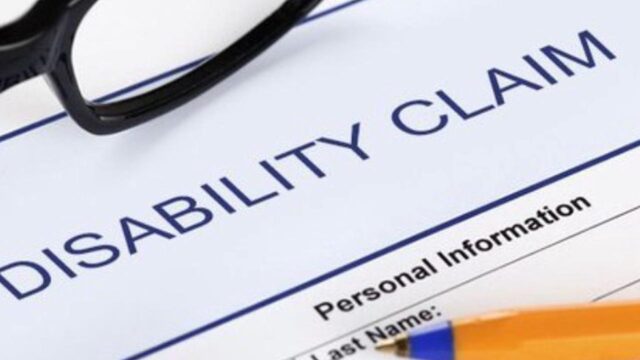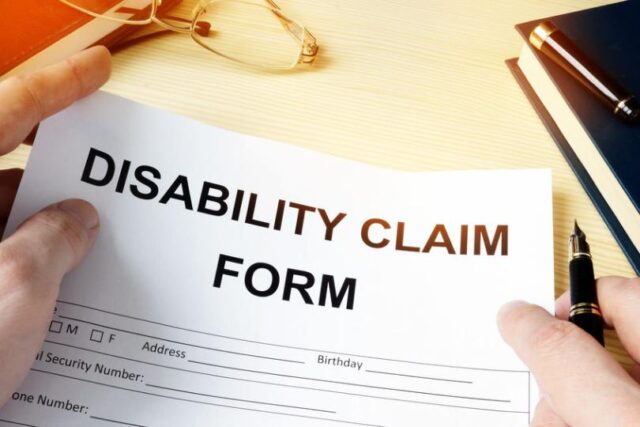
You are unable to work and earn a living due to a serious accident or medical condition. You file a claim with the Canada Pension Plan for disability payments (CPP). You’re waiting for their response. Then you get their response: your claim has been refused.
It is a common misconception that all disability claims are initially dismissed. There is no legislation, policy, or formula in place at the Canada Pension Plan that influences the disability system in such a way that most initial claims for disability benefits are automatically denied. However, when facts are examined, it’s easy to see why so many people feel the Canada Pension Plan has such a policy.
What is a Disability Claim?

Individuals who are unable to work due to illness or a physical or mental handicap are eligible for disability benefits, which are a type of income replacement. Many people are covered by their employer’s group insurance plan for disability benefits. Others, such as self-employed Canadians, may have purchased disability insurance through their personal insurance policies.
CPP Disability coverage may be available to Canadians who have paid into the Canada Pension Plan and can no longer work. Disability payments are also available through Ontario Benefits Support. For Canadians with disabilities, the Government of Canada provides information that describes all government programs.
Unfortunately, insurance companies will sometimes deny coverage based on the severity of your condition or other factors, such as medical assessments recorded on the insurance application. In any circumstance, when your insurer refuses to pay you disability benefits, a disability benefits lawyer such as disabilitylawyertoronto.ca can make sure that your claims application contains all the essential information. A disability lawyer can act as your advocate to get you the payment you deserve.
CPP Disability Benefits Eligibility

The first criteria for receiving CPP disability payments is that you have contributed to the CPP for four of the previous six years, or three of the last six years while working, provided you have contributed for at least 25 years. If you were the primary caretaker for your children and your earnings were too low to make contributions, you may be eligible for payments under the CPP’s special child-rearing provision.
You must have a severe and long-term impairment and be under the age of 65, assuming you meet the contribution requirements. Terminally ill people may be eligible for benefits through a terminal illness application.
It may take several months for your application for receiving benefits to be processed. Individuals with a terminal disease should expect their applications to be reviewed quickly, with a decision coming within five days.
Reasons Behind The Denial Of The Disability Claim

1. CPP Disability Application Late Submission
If you do not file for CPP Disability soon enough after becoming handicapped, the state can refuse your application. For instance, if you wait too long to apply, you may not be able to meet the four-out-of-six-year requirement. The rule states that you must have paid into CPP for four of the six years immediately before your application for CPP Disability.
Make use of the Late Applicant Provision in certain circumstances. It permits an applicant’s Minimum Qualifying Period to be closer to the commencement of their impairment. Late applicants must demonstrate that their health has prevented them from working since the end of their Minimum Qualifying Period (MQP), which might be a long time because they claimed for CPP Disability late.
2. Provision for Late Applicants
People who did not file for CPP Disability as soon as they became disabled may be entitled to use this approach. The four out of six-year criterion may make people ineligible for assistance if they wait too long to apply.
When a person seeking CPP Disability benefits has not paid enough into the program to meet the current contribution requirements, Service Canada automatically examines their contributions to determine when they last paid enough into the program to be eligible for benefits.
An applicant must prove they were disabled by the MQP date and that the disability has been continuous from that date to the present day under the CPP Disability Late Applicant Provision.
3. Insufficient Medical Information

The necessity of demonstrating your condition using medical reports, letters from your doctors and other health specialists, as well as material on your employability is emphasized by the CPP Disability regulations. However, many applicants are unaware of this, and as a result, they are unsuccessful with getting their application approved on the first go.
We’ve encountered several examples when doctors and other health providers were unfamiliar with the CPP disability eligibility standards and were unable to assist their patients. CPP also emphasizes the importance of a person’s condition’s severity and how it affects their ability to work. It is essential that candidates discuss the significance of their ailment, how it has affected their everyday lives, and how it has prevented them from committing to any type of long-term employment.
4. Lack Of CPP Rule & Regulations Knowledge
Although all information about CPP Disability benefits, qualifying requirements, the application process, and rules is readily available on Service Canada’s website, it is typically written in legalese that is difficult to comprehend. Applicants can apply for CPP Disability independently, but they risk losing a case that would otherwise be winnable due to a lack of knowledge about the program.
In order to win CPP Disability benefits, we have found that simply stating that one has a qualifying disability and has made a valid contribution to the CPP is insufficient. These facts and information must be presented clearly and convincingly, and only a professional disability lawyer can do that for you.
Conclusion
If your claim for benefits is denied, you can request a review of your application. Reconsideration must be requested within 90 days. You can appeal to the Social Security Tribunal if reconsideration does not result in a reversal of the rejection; your best rescue is a disability benefits lawyer. Seeking the assistance of a lawyer will help you protect your rights during the appeal and get your claim approved.







